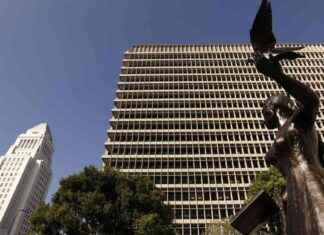Centuries of shared history for having been part of the Corona de Aragón and strong cultural ties make Alghero on a Catalan island within Sardinia, where thousands of people continue to speak and thinking centuries later in Algheré, a catalan dialect, and where their inhabitants
They refer to their city in a colloquial manner with the nickname of Barceloneta.
These ties, who have managed to endure in time to forgetfulness on the rest of the island, involve that in the Catalan nationalist imaginary this Italian municipality is considered the easternmost point of the Catalans Països and, consequently, that both the Generalitat and
Sovereignist associations such as cultural òmnium have been irrigated with thousands of euros in recent decades to promote their relationship with Catalonia and, especially, to encourage the use of their Catalan language.
Now Alghero writes a new page of its particular history with the detention of Carles Puigdemont, the former president of the Generalitat, standing on the European map as the new scenario of the Judicial Telenovela that pursues to the flight since 2017.
The presence of Puigdemont in Alghero has nothing casual, because it is a point pampered by nationalism for its linguistic uniqueness and its Catalan roots.
In addition to being the point of connection with the Sardinian independence movements, which both support have given the Catalan separatists in these times.
The former President was planned to participate this weekend at a Festival of Catalan folklore called Appel International Adifolk, organized by the syndicus of Alghero, the highest municipal authority, which has failed Mario Congori, a politician who has meant for his support
To Procées.
The sympathy of I met by Puigdemont is such that it was delighted to be able to receive it this weekend with a delegation of Junts’ leaders, in which they were the president of Parllament Catalan, Laura Borràs, and the Foreign Victure, Victòria Alsina.
That is why the first reactions of him on TV3 to the arrest were to express the “solidarity” of him with Puigdemont and the support of him to a self-determination referendum for Catalonia.
The trustee – or mayor – of Alghero is an enthusiastic support from Catalan independence.
In October 2017 he was part of a delegation of the Sardinian Party of Action Party that was in Catalonia and that after the illegal referendum of 1-o crushed Spain from “authoritarian and antidemocratic”.
I knew it has been mainly in its trajectory, an advocate for the use and extension of Catalan in its municipality.
As a Vicesindic of Alghero he signed a manifesto to demand his officiality within the European Union, in a movement coordinated by other regions of Spain and France.
Of the 45,000 inhabitants of Alghero, there is about 23% that declares that its first language is Catalan, according to official data from the Generalitat of the year 2004. That is why the Catalan administration, which opened there an Generalitat office in the year
2009, tries to preserve that culture with an investment program to extend the language, which coexists with the Italian and the Sardinity.
The Spanish influence in Sardinia began in the thirteenth century when the island became part of the Corona de Aragón, giving rise to a relationship that was especially active with Catalonia.
That uniqueness has remained despite the passage of centuries and political changes on the island, which ended up with converting it into a more part of Italy.
The most relevant legacy of that past has been the preservation of the language and cultural ties that have turned the municipality into a mini Catalonia in Italy.






